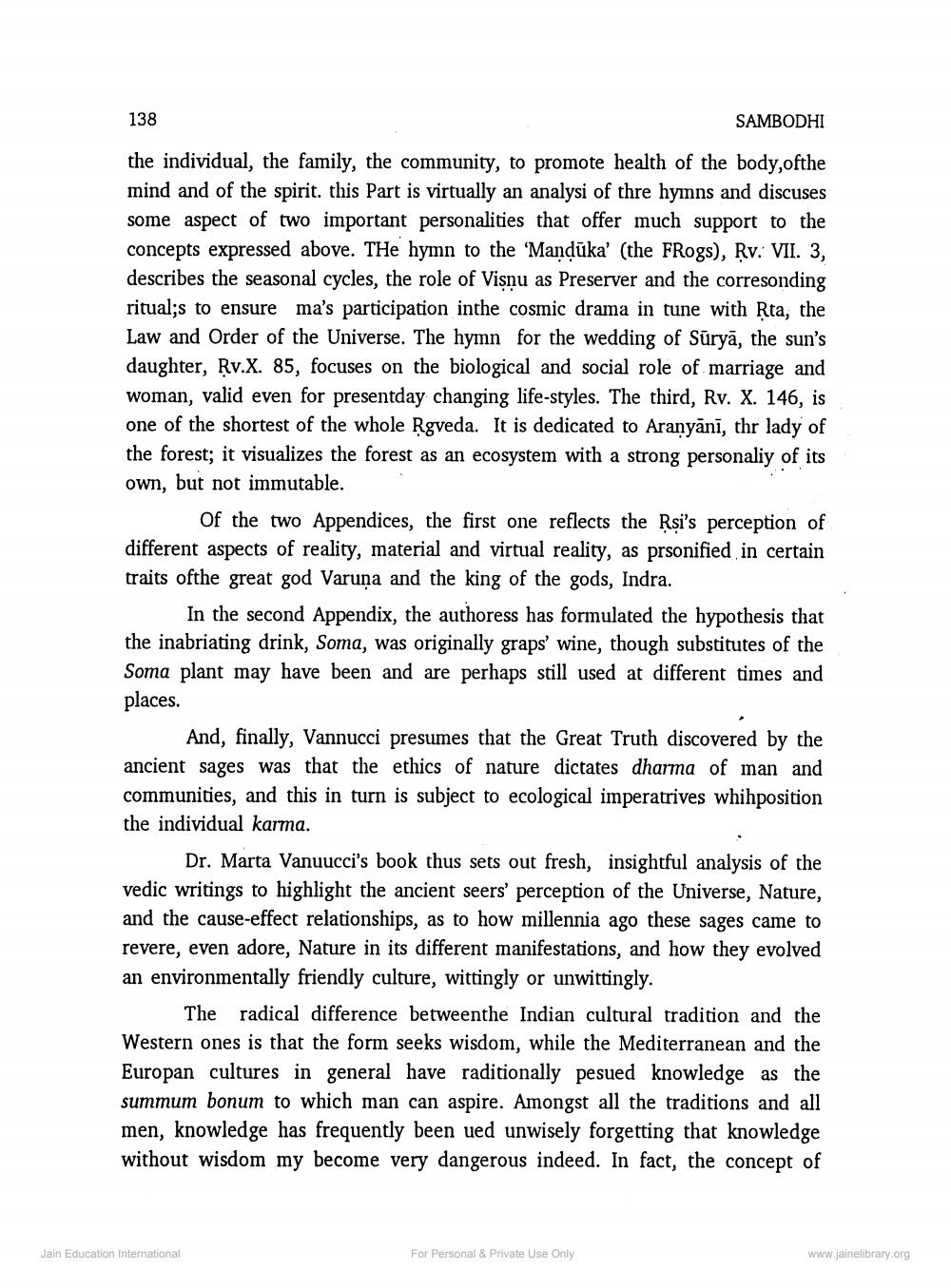________________
138
SAMBODHI
the individual, the family, the community, to promote health of the body,ofthe mind and of the spirit. this Part is virtually an analysi of thre hymns and discuses some aspect of two important personalities that offer much support to the concepts expressed above. THe hymn to the 'Mandūka' (the FRogs), Rv. VII. 3, describes the seasonal cycles, the role of Visnu as Preserver and the corresonding ritual;s to ensure ma's participation inthe cosmic drama in tune with Řta, the Law and Order of the Universe. The hymn for the wedding of Sūryā, the sun's daughter, Rv.X. 85, focuses on the biological and social role of marriage and woman, valid even for presentday changing life-styles. The third, Rv. X. 146, is one of the shortest of the whole Rgveda. It is dedicated to Aranyānī, thr lady of the forest; it visualizes the forest as an ecosystem with a strong personaliy of its own, but not immutable.
Of the two Appendices, the first one reflects the Rsi's perception of different aspects of reality, material and virtual reality, as prsonified in certain traits ofthe great god Varuna and the king of the gods, Indra.
In the second Appendix, the authoress has formulated the hypothesis that the inabriating drink, Soma, was originally graps' wine, though substitutes of the Soma plant may have been and are perhaps still used at different times and places.
And, finally, Vannucci presumes that the Great Truth discovered by the ancient sages was that the ethics of nature dictates dharma of man and communities, and this in turn is subject to ecological imperatrives whihposition the individual karma.
Dr. Marta Vanuucci's book thus sets out fresh, insightful analysis of the vedic writings to highlight the ancient seers' perception of the Universe, Nature, and the cause-effect relationships, as to how millennia ago these sages came to revere, even adore, Nature in its different manifestations, and how they evolved an environmentally friendly culture, wittingly or unwittingly.
The radical difference betweenthe Indian cultural tradition and the Western ones is that the form seeks wisdom, while the Mediterranean and the Europan cultures in general have raditionally pesued knowledge as the summum bonum to which man can aspire. Amongst all the traditions and all men, knowledge has frequently been ued unwisely forgetting that knowledge without wisdom my become very dangerous indeed. In fact, the concept of
Jain Education International
For Personal & Private Use Only
www.jainelibrary.org




